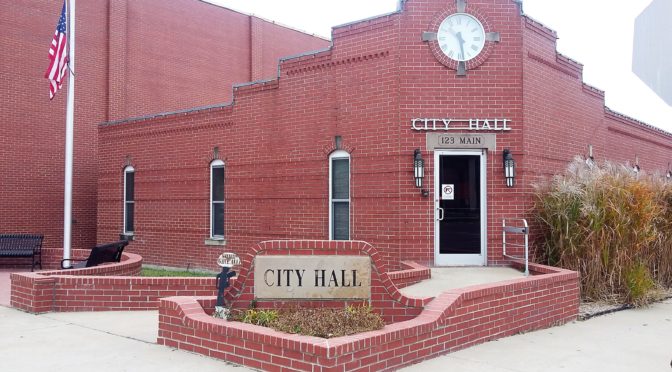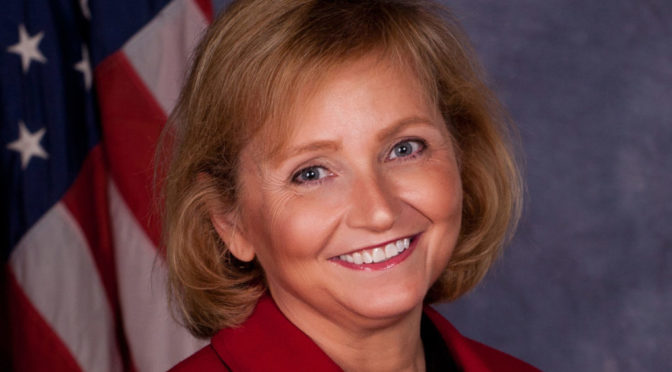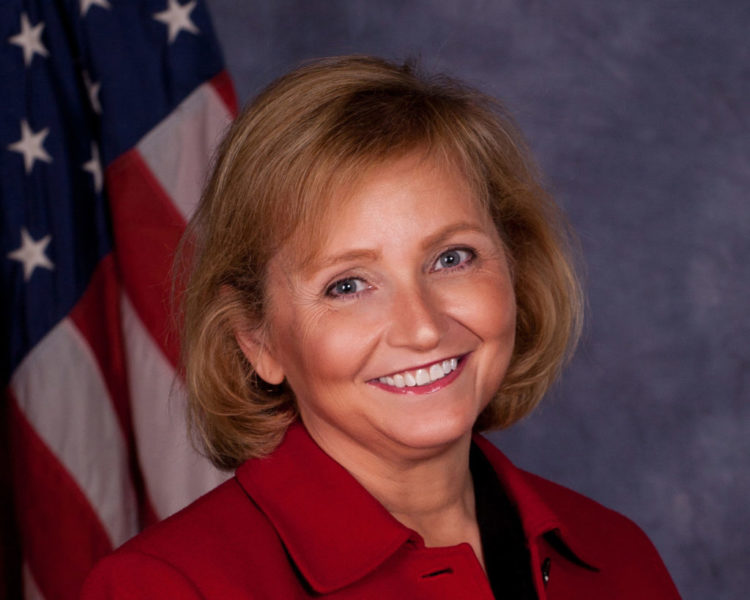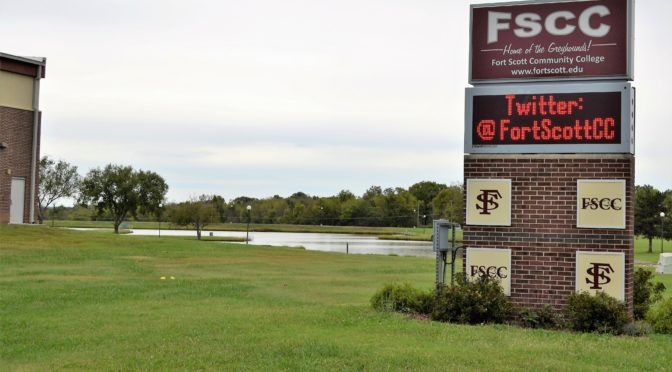Minutes are unapproved.
CITY OF FORT SCOTT
CITY COMMISSION MEETING
Minutes of February 15th, 2022 Regular Meeting #4
The regular meeting of the Fort Scott City Commission was held February 15th, 2022 at 6:00 p.m. in the City Commission Meeting Room at City Hall, 123 S. Main Street, Fort Scott, Kansas.
ROLL CALL:
Commissioners P. Allen, J. Jones, T. Van Hoecke and Matthew Wells were present with Mayor K. Allen presiding.
INVOCATION: Matthew Wells, City Commissioner, said a prayer asking God for guidance for the City, our Government and City officials.
AUDIENCE IN ATTENDANCE: Travis Shelton, Bill Downey, Jackson Tough, Brad Matkin, Rachel Thompson, Mark McCoy, Jason Dickman, Rob Harrington, Doug Guns, Reed Hartford, Jerry Witt, Ryan Coon, Martha Scott, Jean Tucker, Don Tucker, Jessica Allison, Scott Dowd, Josh Newton, Ryan Collier, Bob Reed, Carl Brenner, Bridget Mann, Betty Boyko, Russell Conner, Reitha Clark, Richard Clark, Jana Walker, Charles Gentry, Karen Billiard, and Max Fanning.
PROCLAMATIONS/RECOGNITIONS: Mayor Kevin Allen asked that a Proclamation for Betty Boyko Day be added to the Proclamation section.
Diane Clay, City Clerk, read the Proclamation which proclaims February 23rd, 2022, as Betty Boyko Day in the City of Fort Scott. Betty has served since 2006 as the Superintendent of the Fort Scott National Historic Site and is leaving to move to another position in Beatrice, Nebraska as the Superintendent of the Homestead National Historic Park.
The Commission thanked her for her service and dedication to the Fort Scott National Historic Site.
ADDITIONS TO AGENDA: Mayor Kevin Allen asked that the two items under the City Commissioners topics be moved to New Business and the Contract Mowing for the City be added to New Business.
CONSENT AGENDA:
-
Approval of minutes of the regular meeting of February 1st, 2022 and special meeting of February 7th, 2022.
-
Approval of Appropriation Ordinance 1306-A totaling $736,158.68.
-
Certificate of Appropriateness – Signage – 104 N. National – Healthy Bourbon County Action Team, Inc.
-
Earles Engineering & Inspection, Inc.
Hammon’s/Sharky’s Inspections $1,462.13
City Engineer $4,120.00
Fort Scott Dam Improvements $2,500.00
17th & Eddy Drainage Project $1,440.00
-
January Financials
Discussion was held regarding the light poles that have blue lights that Evergy has installed.
Mark McCoy said that we are to notify Evergy, and they will replace the faulty light.
K. Allen asked if possibly Police and Fire could look for these faulty lights when they are out patrolling at night.
M. Wells asked about the January financial reports and that the water and wastewater funds were in a negative balance. He also asked about the franchise fee and the amount of lost revenue due to cable television. He asked if anyone had checked into all the streaming services and if a franchise fee could be assessed.
City Manager will check into these issues.
K. Allen asked about the Evergy bill for $1,465.00 for parks and if that included all the parks in the City.
K. Allen asked how often mill levy funds are distributed to the Library.
City Manager will check into this.
Discussion was held regarding the invoice for the phone system.
Mark McCoy said that the new phone system will be a savings of over $40,000.
M. Wells moved to approve the Consent Agenda. T. Van Hoecke seconded. All voted aye.
APPROVED CONSENT AGENDA.
Public Comment:
(Sign up required. Comments on any topic not on the agenda and limited to 5 minutes per person, at Commission discretion)
Karen Billiard – Mrs. Billiard said that she is concerned about the lack of streetlights at Marblecrest Terrace and Marblecrest Drive. She said that it is very dark in that area at night. She said that there have also been reports of a prowler in the area.
City Commissioners said that they will check into this.
Jana Walker – Mrs. Walker thanked the Commission for addressing the blue lights on the streetlight poles. She said that their neighborhood is very dark at night and can even be scary because it is so dark.
Commissioners will check into this.
Richard Clark – Mr. Clark said that he is concerned with the amount of trees that are being cut down at the Lake. They are part of a camping group of fiberglass campers that travels to rallies and campers like to park by trees and shady areas.
Doug Guns said that they determined seven (7) dead or diseased trees that needed to be taken down which is what they are doing.
Old Business:
-
Approval of Amendment of Fireworks Ordinance No. 3602 – City Manager said that this was the amendment to the ordinance that was approved at the last meeting. This is the actual ordinance.
T. Van Hoecke moved to approve Ordinance No. 3602. M. Wells seconded. All voted aye.
APPROVED ORDINANCE NO. 3602 AMENDING THE HOURS OF THE DISCHARGE OF FIREWORKS INSIDE THE CITY LIMITS OF THE CITY OF FORT SCOTT, BOURBON COUNTY, KANSAS, AND AMENDING SECTION 15.020.025 IN THE FORT SCOTT MUNICIPAL CODE.
Appearances:
Jerry Witt – Riverfront – Mr. Witt appeared before the Commission to ask for approval to submit a grant for Riverfront Park. He gave the Commission history on the Riverfront Park. In 2005, a group of individuals met and decided they needed to clean up the north end of the City by the Marmaton River. In 2007, the Senate approved the formation of the Riverfront Authority. Mr. Witt gave an update on all the grants and funding that has been received through the years. He informed the Commission that he wished to apply for another grant with the Kansas Department of Transportation TA program. This is a $135,000 grant with an 80/20% match. The Riverfront Authority will pay the 20% match so there is no cost to the City. He asked for approval of the Resolution to apply for the K.D.O.T. TA Grant. The grant has to be submitted by March 1st, 2022. This grant is to rebuild the trails which involves 2,953 linear feet with 8” of asphalt on the south side of the Riverfront Park.
J. Jones moved to approve to apply for the K.D.O.T. TA Grant in the amount of
$135,000 and approve Resolution No. 6-2022. M. Wells seconded. All voted aye.
APPROVED RESOLUTION NO. 6-2022 DECLARING THE ELIGIBILITY OF THE FORT SCOTT/BOURBON COUNTY RIVERFRONT AUTHORITY TO SUBMIT AN APPLICATION TO THE KANSAS DEPARTMENT OF TRANSPORTATION FOR USE OF TRANSPORTATION ALTERNATIVES PROGRAM FUNDS SET FORTH BY MAP-21 FOR THE RIVFERFRONT TRAIL PROJECT IN THE CITY OF FORT SCOTT AND AUTHORIZING THE MAYOR TO SIGN THIS APPLICATION.
Jessica Allison – American Legion – Ms. Allison informed the Commission that she is the Commander of the local American Legion. They are looking to host some fundraisers to raise money for their organization and would like to have bingo at Memorial Hall. They would have bingo two to three times a month and build from there. They would need to use the main area of Memorial Hall as well as the concession area.
City Clerk informed the Commission that the City has no food license at Memorial Hall any longer.
T. Van Hoecke also informed her that a mold study is being conducted in the building.
T. Van Hoecke moved to allow Memorial Hall to be used as a place for bingo and the concession area for the American Legion organization. M. Wells seconded. All voted aye.
APPROVED TO ALLOW MEMORIAL HALL FOR THE AMERICAN LEGION ORGANIZATION TO BE USED FOR BINGO TWO TO THREE TIMES A MONTH AS WELL AS ALLOW THE MAIN AREA AND CONCESSION AREA AT MEMORIAL HALL.
Jody Hoener & Rachel Carpenter – Bourbon County Health Action Team – Failed to appear.
Bob Reed – Bourbon County Fair & Rodeo – Bob Reed said that he is the Assistant Superintendent of the Bourbon County Fair Board. He asked for support from the City for the Bourbon County Fair. He mentioned that last year the City gave $5,000. He asked the City to match the County contribution of $10,000. He updated the Commission on events that are held at the fairgrounds as well as some upcoming events. He asked for two items: 1) Monetary support for the Bourbon County Fair Board; 2) Allow EMS to be on scene for their upcoming rodeo at no charge.
City Manager said that he would like to look at the budget first before a decision is made.
This will be on the March 1st, 2022 agenda.
Ryan Collier – 12th & Main fence – Mr. Collier informed the Commission that he was the contractor that built the fence at 12th and Main Street. He got a building permit on 12/8/2021. He was told by the Codes Officer that no permit was needed for the fence. He went ahead and installed the fence poles in concrete. Then he received a stop order on 12/9/2021. He had $5,400 worth of materials. He then met with Bill Downey who told him there was no issue with it. But, 30 days later the homeowner got a letter from the City stating they need to relocate the fence. He asked who was going to fix the fence?
City Manager said that we will handle it internally. There was an issue with the right-of-way versus the easement.
New Business:
-
Consideration of Bids – Manhole 148 Project – Jason Dickman, Earles Engineering, informed the Commission that bids were taken for the Old Faithful manhole. There were four (4) bids received and two of the bids were not valid. One bid had no bid bond, and the other bid did not acknowledge Addendum No. 2. The low bid was from Nowak Construction Company, Inc. of Goddard, Kansas in the amount of $340,734.00. The other bid was from Sprouls Construction, Inc. of Lamar, Missouri in the amount of $386,300.00. The engineer’s estimate for the project was $192,000.00. In reviewing the bids, the unit price for pipe has more than doubled as well as other materials.
M. Wells asked if the City could do the concrete part of this project to save money.
Jason said that he will check with the contractor and let the City Manager know.
This will come back at the March 1st, 2022 meeting.
-
Lake Fort Scott Discussion (Doug Guns):
-
Discussion of sale of six (6) additional Lake Fort Scott properties – Josh Jones informed the Commission that he would like to see the City sell another six properties at the Lake. They would need to be 90’ X 100’ which would be the standard lot size. He asked if we could get these lots surveyed.
T. Van Hoecke said that he would like to see the original two (2) lots finalized first as they are not yet closed.
Commissioners asked Jason Dickman if Earles Engineering could do the surveying of these additional six lots.
Jason said that he could check their schedule but thought they could get it surveyed in the next 4-6 weeks.
Commissioners verbally authorized Earles Engineering to survey the next six (6) additional lots at Lake Fort Scott.
-
Consideration of Lake Fort Scott RFP for Boat Docks – Doug Guns, Lake Supervisor, informed the Commission that that he prepared an RFP for four (4) boat docks at Lake Fort Scott. Doug said that he has applied for a grant with Kansas Department of Wildlife and Parks for the docks.
T. Van Hoecke moved to send out Request for Proposals for boat docks at Lake Fort Scott and for the funds to come out of the Capital Improvement Fund for the Lake. M. Wells seconded. All voted aye.
APPROVED to send out Request for Proposals for boat docks at Lake Fort Scott and for the funds to come out of the Capital Improvement Fund for the Lake.
-
Consideration of mower for Lake Fort Scott – Doug Guns informed the Commission that he prepared an RFP for the purchase of a zero-turn mower at Lake Fort Scott. It is not in the City’s capital improvement fund for this year but asked if it could come out of the Lake Improvement Fund.
Discussion was held on getting an inventory of all City equipment and if equipment can be borrowed from one department to the other – like from the Airport to the Lake.
Doug said that does occur between departments already.
Discussion was also held regarding the contract mowing the City does for the Codes Department and if Lake Fort Scott could be included in that.
M. Wells moved to send out the Request for Proposals for a zero-turn mower at Lake Fort Scott. J. Jones seconded. All voted aye.
APPROVED TO SEND OUT REQUESTS FOR PROPOSALS FOR A ZERO-TURN MOWER AT LAKE FORT SCOTT.
-
Consideration of Part-Time Labor for Fort Scott Lake – Doug said that this was on the agenda for a part-time employee to mow at the Lake. This position would be from April to October and be less than 1,000. There would not be health insurance or KPERS offered.
Discussion was held to hold off on this until the City receives the contract mowing bid back with the Lake mowing included on it.
-
Consideration of RFQ for Engineering firm for Lake Fort Scott Valve – Mayor Allen asked if this request is for the secondary valve or the original valve.
Doug said that there may be grants available, but they would be 50/50 grants.
K. Allen moved to send out Requests for Qualifications for Engineering Firms for the Lake Fort Scott Valve. P. Allen seconded.
APPROVED TO SEND OUT REQUESTS FOR QUALIFICATIONS FOR ENGINEERING FIRMS FOR THE LAKE FORT SCOTT VALVE.
-
Discussion of upgrades at Lake Fort Scott – Doug Guns brought them a list of prospective upgrades at the Lake.
Commission determined that a work session is needed to prioritize these items. The work session will be held on February 22nd, 2022, at 5:00 p.m.
T. Van Hoecke moved to hold a work session to prioritize the upgrades at Lake Fort Scott to be held on February 22nd, 2022, at 5:00 p.m. M. Wells seconded. All voted aye.
Approved to hold a work session to prioritize the upgrades at Lake Fort Scott to be held on February 22nd, 2022 at 5:00 p.m.
-
Discussion of City permitting fees (Bill Downey/Mark McCoy) – Bill Downey, Codes Supervisor, informed the Commission that he gave them at the previous meeting a comparison of what other cities charge for fencing permits.
M. Wells recommended charging $35.00 for a fence permit with fees charged for the cost of the fence for $2.00 more per thousand.
T. Van Hoecke said he recommended a flat $25.00 rate.
T. Van Hoecke moved to charge a $25.00 fee for a fence permit. K. Allen seconded. P. Allen, J. Jones, T. Van Hoecke, and K. Allen voted aye. M. Wells voted no. Motion carried 4-1
APPROVED TO CHARGE A $25.00 FEE FOR A FENCE PERMIT.
-
Discussion of City business licenses and other City licenses – Mark McCoy, Project Manager, informed the Commission that he and Bill Downey have surveyed many cities along with Commissioner Wells on permit fees. They shared a list of surrounding areas and their fees.
Discussion was held if not-for-profits would be charged a business license. Discussion was held they should not be charged.
Mr. McCoy asked for permission to bring back an ordinance at the next meeting for the business license and increase in City fees.
K. Allen left the room at 8:55 p.m.
-
Consideration of Pay Request – Skitch’s Hauling & Excavation, Inc. – $2,340.00 – January 2022 Port-a-Potty Invoice
J. Jones moved to approve the invoice for Skitch’s Hauling & Excavation, Inc. in the amount of $2,340.00. M. Wels seconded. All voted aye.
APPROVED THE INVOIE FOR SKITCH’S HAULING & EXCAVATION, INC. IN THE AMOUNT OF $2,340.00 FOR PORT-A-POTTY SERVICES FOR JANUARY 2022.
K. Allen returned to the room at 8:56 p.m.
-
Street Advisory Committee Report – Charles Gentry, Chairman, Street Advisory Board that their board met recently and recommended that all the main trafficway streets be designated in one ordinance. There are 13 streets, and some have been on the existing lists for some time. The streets are as listed:
U.S. Highways 54 and 69 entire routes
Wall Street from U.S. 54 to National Avenue
National Avenue entire route
6th Street from Broadway to Heylman
Horton Street from 6th Street to South City Limits
Broadway from Wall to 6th Street
Margrave from Wall to South City Limits
18th Street from Horton to National Avenue
Cooper Street entire route
23rd Street entire route
3rd Street from 69 Highway to Margrave
East National Avenue entire route
Franklin from Wall Street North to City Limits
M. Wells said that he will be putting this into ordinance form and bringing it back before them for approval.
-
Discussion of Unsafe Structure List – Tim Van Hoecke stated he wants to make sure in the demolition contract that it is stated the structure must be torn down and not moved to another location. Tim stated that there is budget funds leftover from 2021 and we could possibly demolish 32 houses this year. He and Bill Downey have identified 13 structures and letters have been mailed. Their date to be in compliance with the City is March 11th, 2022. If not in compliance, at the March 15th, 2022 meeting, the demolition proceedings will begin.
-
Discussion of Contract Mowing – Josh Jones asked that this be put on the agenda for discussion. He would like to see the City get a total bid for the season and then a total bid per yard. He would also like the bid to include mowing at Lake Fort Scott.
J. Jones moved to approve to send out the Contract Mowing Bid Advertisement and include a bid for the entire season, a bid per yard and include the Lake Fort Scott mowing. T. Van Hoecke seconded. All voted aye.
APPROVED TO SEND OUT THE CONTRACT MOWING BID ADVERTISEMENT AND INCLUDE A BID FOR THE ENTIRE SEASON, A BID PER YARD, AND INCLUDE THE LAKE FORT SCOTT MOWING.
9. Request to submit Base Grant – Rob Harrington, Bourbon County R.E.D.I. Director, informed the Commission that he wished to submit a base grant for the water project on the south side of town to the Kansas Department of Commerce. It is a 75/25 match grant. He said that the 25% can come from A.R.P.A. funds. The grant is $450,000.00.
M. Wells moved to allow Bourbon County R.E.D.I. to apply to the Kansas Department of Commerce for the $450,000.00 base grant for the water project. J. Jones seconded. All voted aye.
APPROVED TO ALLOW BOURBON COUNTY R.E.D.I. TO APPLY TO THE KANSAS DEPARTMENT OF COMMERCE FOR THE $450,000 BASE GRANT FOR THE WATER PROJECT ON THE SOUTH SIDE OF TOWN.
Reports and Comments:
-
Commissioner Reports and Comments:
-
City Manager Comments:
Schneider Energy Savings Report – Kelley informed the Commission that he provided them with the savings from Schneider Energy. It appears according to their records the City has saved $89,695.00
Discussion was held that this was Schneider’s report, and we should do our own report.
Microphone System for Commission Room quotation – Kelley said that Shane Walker brought a firm to the Commission room where they looked at our microphone system. This quote for $12,963.00 would upgrade the room and the tv and microphone system.
Discussion was held to solicit RFP’s for this service from other firms.
Demolition Contract – Kelley went over the changes to the demolition contract that he had made and shared it with the Commission.
Buoys at Lake Fort Scott – Kelley said that the Lake Patrol Officer will move the buoys at the lake when the weather permits.
Andrick Street – Kelley said that he talked to Jerry Morgan and that the project in the 500 block of Andrick Street is not complete yet. They plan to bring the pothole patcher there and finish it up next week.
Sign Painting – Lake Fort Scott – Kelley said that he talked to Chad Cliffman, and he will be getting him a quote to paint the signs at the entrance of Lake Fort Scott.
-
Commissioners Reports and Comments:
M. Wells – Matthew reported that he attended the Street Advisory Board meeting also and the board recommended approving to the City Commission that not a single brick street should be covered with asphalt any longer in the City of Fort Scott and all brick streets should be saved. They plan to have a meeting where the public can give input also at their next meeting regarding brick streets. He shared his views on the importance of brick streets and to preserve them.
Discussion was held between Matthew and Pete on brick streets and that we cannot say we will not overlay a brick street due to the condition of it.
P. Allen – Pete said that he is excited about the Manhole 148 project. This sanitary sewer has backed up for over 30 years and they are the first Commission to deal with it.
Pete also read a statement about the 1% sales tax and how we need to make sure that funds are not removed out of funds that they are specified for.
J. Jones – Nothing to report.
T. Van Hoecke – Tim thanked the City crews who worked the water main break during the last snowstorm when the temperatures were bitter cold.
Tim asked about the Director of Finance position.
Brad stated that he has taken the position down.
Kelley said that they are looking to split this position between three people at the City.
Tim thanked the City Clerk for providing the League of Kansas Municipalities training flyer to them and he urged all the Commissioners to take part of the training.
K. Allen – Kevin asked to see the current financial policy as well as the previous policy and for the Commission to look at spending limits.
He asked for an update on Municipal Court.
Diane Clay, Court Clerk told him that the first update was done on Tuesday, February 15th between the Police software and the City’s Court software. It is getting closer.
No Parking on 12th Street from Margrave to the Fort Scott Middle School – Kevin asked about putting No Parking signs on 12th Street and asked the Chief of Police for his opinion.
Travis Shelton, Chief of Police, said that 12th Street is highly traveled as well as 10th Street. He will have his officers talk to the neighbors and see what their thoughts are on this.
Water/Sewer Rates – Kevin apologized for the water rate increase and said that he doesn’t like it either. He has had several calls from people with fixed incomes.
Bricks – Kevin said that the inmates at the jail have worked almost 12 pallets of bricks. He thanked them for their work and the City will be bringing more to them.
Executive Session:
T. Van Hoecke moved to recess into Executive Session for personnel matters of non-elected personnel exception in K.S.A. 75-4319(b)(1) until 10:16 p.m. This will include City Commissioners, City Attorney, Brad Matkin, Human Resource Director, and Kelley Zellner, City Manager. J. Jones seconded. All voted aye.
J. Jones moved to come out of Executive Session at 10:16 p.m. T. Van Hoecke seconded. All voted aye.
Adjournment:
J. Jones moved to adjourn the meeting at 10:17 p.m. K. Allen seconded. All voted aye.
ADJOURNED MEETING AT 10:17 P.M.
Respectfully submitted,
Diane K. Clay, MMC
City Clerk




